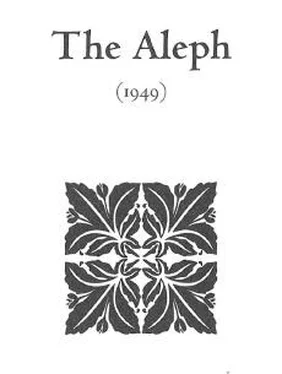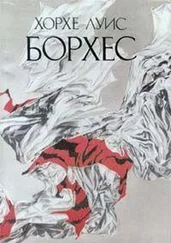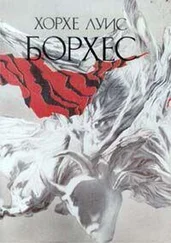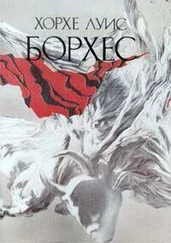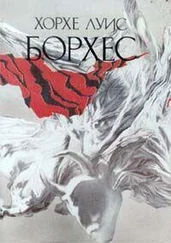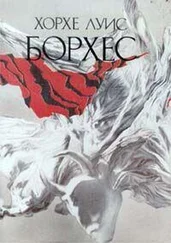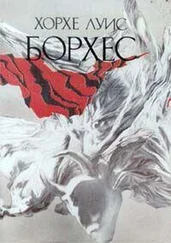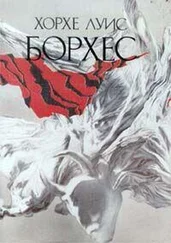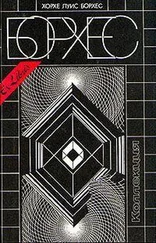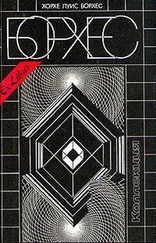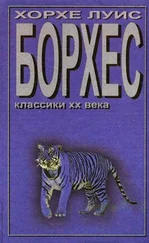Хорхе Борхес - Collected Fictions
Здесь есть возможность читать онлайн «Хорхе Борхес - Collected Fictions» весь текст электронной книги совершенно бесплатно (целиком полную версию без сокращений). В некоторых случаях можно слушать аудио, скачать через торрент в формате fb2 и присутствует краткое содержание. Год выпуска: 1999, ISBN: 1999, Издательство: Penguin (UK), Жанр: Старинная литература, на английском языке. Описание произведения, (предисловие) а так же отзывы посетителей доступны на портале библиотеки ЛибКат.
- Название:Collected Fictions
- Автор:
- Издательство:Penguin (UK)
- Жанр:
- Год:1999
- ISBN:9780140286809
- Рейтинг книги:5 / 5. Голосов: 1
-
Избранное:Добавить в избранное
- Отзывы:
-
Ваша оценка:
- 100
- 1
- 2
- 3
- 4
- 5
Collected Fictions: краткое содержание, описание и аннотация
Предлагаем к чтению аннотацию, описание, краткое содержание или предисловие (зависит от того, что написал сам автор книги «Collected Fictions»). Если вы не нашли необходимую информацию о книге — напишите в комментариях, мы постараемся отыскать её.
Collected Fictions — читать онлайн бесплатно полную книгу (весь текст) целиком
Ниже представлен текст книги, разбитый по страницам. Система сохранения места последней прочитанной страницы, позволяет с удобством читать онлайн бесплатно книгу «Collected Fictions», без необходимости каждый раз заново искать на чём Вы остановились. Поставьте закладку, и сможете в любой момент перейти на страницу, на которой закончили чтение.
Интервал:
Закладка:
Toenails
* Recoleta: The "necropolis" near the center of Buenos Aires, where the elite of Porteño society buries its dead. See also note to "The Aleph" in The Aleph.
Covered Mirrors
* Federalists/Unitarians: The Federalists were those nineteenth-century conservatives who favored a federal (i.e., decentralized) plan of government for Argentina, with the provinces having great autonomy and an equal say in the government; the Federalists were also "Argentine," as opposed to the internationalist, Europe-looking Unitarians, and their leaders tended to be populist caudillos, their fighters in the civil wars to be gauchos. The Unitarians, on the other hand, were a Buenos Aires-based party that was in favor of a centralizing, liberal government; they tended to be "free-thinkers," rather than Catholics perse, intellectuals, internationalists, and Europophile in outlook Unitarians deplored the barbarity of the gaucho ethos, and especially sentimentalizing that way of life; they were urban to a fault. This old "discord between their lineages," as Borges puts it in this story, is the discord of Argentina, never truly overcome in the Argentina that JLB lived in.
* Balvanera: One can assume that at the time"Borges"had this experience, Balvanera was a neighborhood of "genteel poverty" much as one might envision it from the description of "Julia," but in the story "The Dead Man," in The Aleph, Balvanera is the neighborhood that the "sad sort of hoodlum"Benjamín Otálora comes from, and it is described as a district on the outskirts of the Buenos Aires of 1891 (which does not, emphatically, mean that it would be on the outskirts of the Buenos Aires of 1927, the time of the beginning of "Covered Mirrors"), a neighborhood of "cart drivers and leather braiders." Thus Balvanera is associated not so much with gauchos and cattle (though the Federalist connection hints at such a connotation) as with the stockyards and their industries, the secondary (and romantically inferior) spin-offs of the pampas life. Balvanera here, like Julia's family itself, is the decayed shadow of itself and the life it once represented.
* Blank wall of the railway yard... Parque Centenario: The railway ran (and runs) through Balvanera from the Plaza del Once station westward, out toward the outskirts of Buenos Aires. Sarmiento runs westward, too, but slightly north of the rail-way line, and running slightly northwest. It meets the Parque Centenario about a mile and a half from the station.
The Mountebank
* Chaco River: In the Litoral region of northern Argentina, an area known for cattle raising and forestry.
Delia Elena San Marco
* Plaza del Once (pronounced óhn-say, not wunce). This is actually usually given as Plaza Once, but the homonymy of the English and Spanish words makes it advisable, I think, to modify the name slightly so as to alert the English reader to the Spanish ("eleven"), rather than English ("onetime" or "past"), sense of the word. JLB himself uses "Plaza del Once" from time to time, as in the Obras completas, vol. II, p.428, in the story"La señoramayor," in Informe de Brodie ("The Elderly Lady," in Brodie's Report, p. 375). Plaza Once is one of Buenos Aires' oldest squares, "associated in Borges's memory with horse-drawn carts" (Fishburn and Hughes), though later simply a modern square, and now the site of Buenos Aires' main train station for west-bound railways.
A Dialog Between Dead Men
* Quiroga: Like many of the pieces in this volume ("The Captive," "Martin Fierro""Everything and Nothing"), "A Dialog Between Dead Men" sets up a "dialog" with others of Borges' writings, especially a famous poem called "General Quiroga Rides to His Death in a Carriage" ("El general Quirogava en coche al muere [sic, for "a sumuerte, a la muerte," etc.]"). There the reader will find the scene that is not described but only alluded to here, the murder of General Quiroga by a sword-wielding gang of horsemen under the leadership of the Reinafe brothers. Some biographical information is essential here:Juan Facundo Quiroga (1793-1835) was a Federalist caudillo (which means that he was on the side of Rosas [see below]), and was, like Rosas, a leader feared by all and hated by his opponents; he was known for his violence, cruelty, and ruthlessness and made sure that his name was feared by slitting the throats of the prisoners that his forces captured and of the wounded in the battles that he fought. So great was his charisma, and so ruthless his personality, that his supposed ally in the fight against the Unitarians, Juan Manuel de Rosas, began to resent (and perhaps suspect) him. As Quiroga was leaving a meeting with Rosas in 1835, he was ambushed by the Reinafe gang, and he and his companions were brutally murdered, their bodies hacked to pieces; it was widely believed (though stubbornly denied by Rosas) that Rosas had ordered the assassination.
* Rosas: Juan Manuel de Rosas (1793-1877) was the dictator of Argentina for eighteen years, from 1835 to 1852. His dictatorship was marked by terror and persecution, and he is for JLB one of the most hated figures in Argentine history; JLB's forebears, Unitarians, suffered the outrages of Rosas and his followers. Early in his career Rosas was a Federalist (later the distinction became meaningless, as Rosas did more than anyone to unify Argentina, though most say he did so for all the wrong reasons), a caudillo whose followers were gangs of gauchos and his own private vigilante force, the so-called mazorca (see the story "Pedro Salvadores" in In Praise of Darkness). He methodically persecuted, tortured, and killed off his opponents both outside and inside his party, until he at last reigned supreme over the entire country. See the poem "Rosas" in JLB's early volume of poetry Fervor de Buenos Aires.
* "Chacabuco and junin and Palma Redondo and Caseros": Battles in the wars of independence of the countries of the Southern Cone.
The Yellow Rose
* Porpora de' giardin, pompa de' prato, I Gemma dì primavera, occhio d'aprile ... : These lines are from a poem, L'Adone, written by Marino (1569-1625) himself (III:i58,11.1-2).
Martín Fierro
* Ituzaingó or Ayacucho: Battles (1827 and 1824 respectively) in the wars of independence against Spain.
* Peaches... a young boy... the heads of Unitarians, their beards bloody: This terrible image captures the cruelty and horror of the civil war that racked Argentina in the early nineteenth century, and the brutality with which the Federalists, when they were in power under Rosas, persecuted and terrorized the Unitarians. In other stories the translator has noted that slitting throats was the preferred method of dispatching captured opponents and the wounded of battles; here the opponents are decapitated. Making this all the more horrific is the fact that it was JLB's maternal grandfather, Isidoro Acevedo, who as a child witnessed this scene. In JLB: Selected Poems 1923-1967 (Harmondsworth: Penguin, 1985), p. 316, the editor quotes Borges (without further citation): "One day, at the age of nine or ten, he [Isidoro Acevedo] walked by the Plata Market. It was in the time of Rosas. Two gaucho teamsters were hawking peaches. He lifted the canvas covering the fruit, and there were the decapitated heads of Unitarians, with blood-stained beards and wide-open eyes. He ran home, climbed up into the grapevine growing in the back patio, and it was only later that night that he could bring himself to tell what he had seen in the morning. In time, he was to see many things during the civil wars, but none ever left so deep an impression on him."
Читать дальшеИнтервал:
Закладка:
Похожие книги на «Collected Fictions»
Представляем Вашему вниманию похожие книги на «Collected Fictions» списком для выбора. Мы отобрали схожую по названию и смыслу литературу в надежде предоставить читателям больше вариантов отыскать новые, интересные, ещё непрочитанные произведения.
Обсуждение, отзывы о книге «Collected Fictions» и просто собственные мнения читателей. Оставьте ваши комментарии, напишите, что Вы думаете о произведении, его смысле или главных героях. Укажите что конкретно понравилось, а что нет, и почему Вы так считаете.
